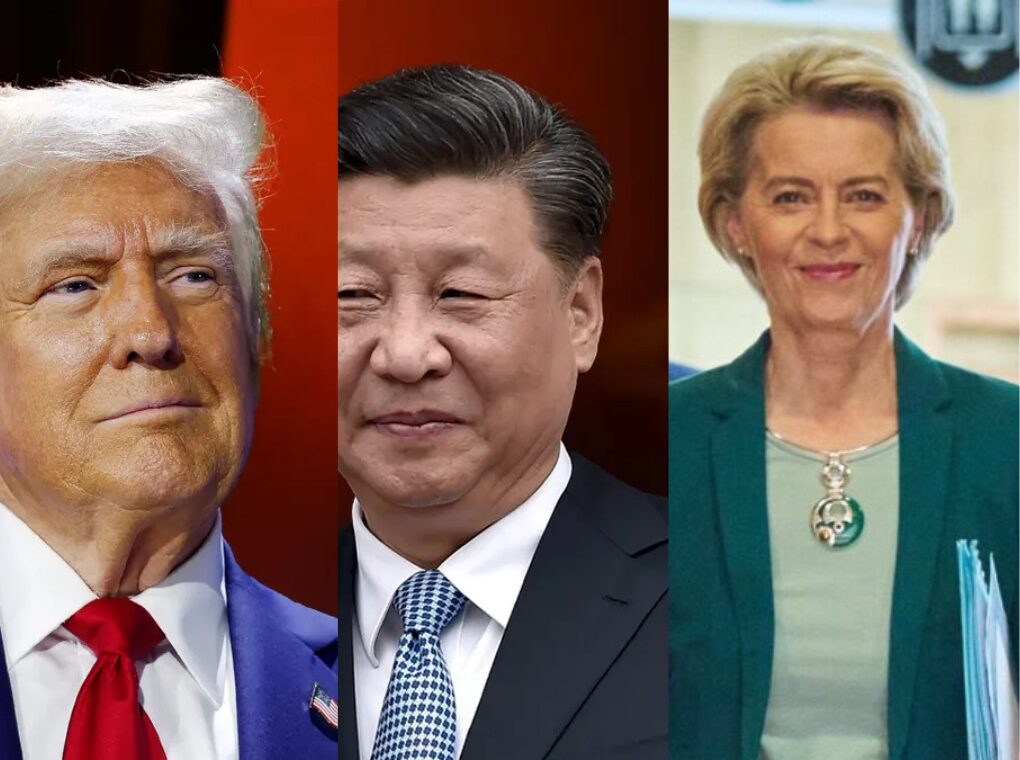Europe, long considered a global industrial powerhouse, is experiencing a quiet but profound transformation. From seizing control of Chinese companies to cutting off energy ties with Russia, the continent increasingly appears to be following a path dictated by Washington.
Critics argue that Europe’s policies are no longer driven by its own interests but by alignment with U.S. agendas, raising an urgent question: is Europe turning into America’s economic colony?
The Nexperia Takeover: A Warning Sign
The latest example comes from the Netherlands, which recently took control of Nexperia, a semiconductor company owned by China’s Wingtech Technology. At first glance, it may seem like a straightforward national security decision. The Dutch government cited “security risks” and invoked the rarely used Goods Availability Act to assume control.
But Nexperia is far from a minor player. Its chips power cars, smartphones, and home electronics across the globe. China’s Wingtech acquired it in 2018 for $3.6 billion, establishing a significant foothold in Europe’s technology sector.
The takeover caused immediate financial repercussions for the Chinese company, but the larger story is strategic: the Netherlands acted not in isolation but in alignment with U.S. objectives, highlighting how small European nations are executing Washington’s broader agenda.
Europe’s Energy Crisis: From Dependence on Russia to Dependence on America
Energy has become another arena of Europe’s increasing reliance on the U.S. Before 2022, nearly 40% of Europe’s natural gas came from Russia through pipelines like Nord Stream and Yamal. Following the Ukraine war and U.S.-backed sanctions, Russia cut off supplies, triggering skyrocketing energy prices, inflation, and industrial shutdowns.
Europe turned to U.S. liquefied natural gas (LNG) to fill the gap. Between 2021 and 2024, American LNG exports to Europe surged by over 130%. Yet U.S. LNG is far more expensive than Russian pipeline gas, increasing costs for European industries and eroding global competitiveness. In effect, Europe traded one dependency for another — exchanging Russian energy for U.S. energy, strengthening Washington’s leverage over the continent.
Deindustrialization: Europe’s Silent Economic Crisis
The fallout has been severe. High energy costs and policy-driven disruptions have forced European industries — from steel and chemicals to automotive production — to relocate to the U.S. and Asia, where energy is cheaper and government incentives are more generous. This trend of deindustrialization is eroding Europe’s economic base, reducing jobs, and stunting innovation.
Simultaneously, foreign investors are watching warily. Countries that witnessed Europe freezing Russian assets are cautious about placing their capital on the continent. The recent crackdown on Chinese investments, exemplified by the Nexperia case, risks alienating one of Europe’s largest sources of foreign capital. If Chinese investors pull back, the EU could face slower growth, fewer jobs, and delayed technological progress.
Beyond Economics: Defense and Political Dependence
Dependence isn’t limited to money and energy; it extends to defense and strategic policy. NATO has long been Europe’s security backbone, but in reality, it is the United States that supplies the weapons, strategy, and financing. Despite pledges to develop European defense capabilities, EU nations remain reliant on American jets, tanks, and missiles. This security dependence amplifies U.S. influence, ensuring European alignment on sanctions, trade, and foreign policy.
Sovereignty in Question
Europe continues to claim “strategic autonomy” and acts as a unified bloc on the surface. But in practice, its decisions often mirror U.S. interests: banning Chinese tech, supporting Ukraine, and taking over Chinese companies.
Public opinion reflects growing unease; surveys show increasing skepticism about Europe’s close alignment with Washington. The question is whether Europe can still be considered independent when its energy, defense, technology, and foreign policy are tied to a single ally.
The Path Forward: Can Europe Reclaim Its Independence?
Europe still has options. Diversifying energy sources, attracting investment from Asia, Africa, and Latin America, strengthening internal manufacturing, and balancing its partnership with the U.S. could help restore autonomy. The warning signs — from Nexperia to American LNG dominance and rising living costs — are clear. Ignoring them risks turning Europe, the world’s second-largest economy, into the most expensive client state of the United States.
The key question remains: is Europe protecting its own interests, or surrendering them in the name of alignment? The answer will shape the continent’s economic and geopolitical future for decades.
